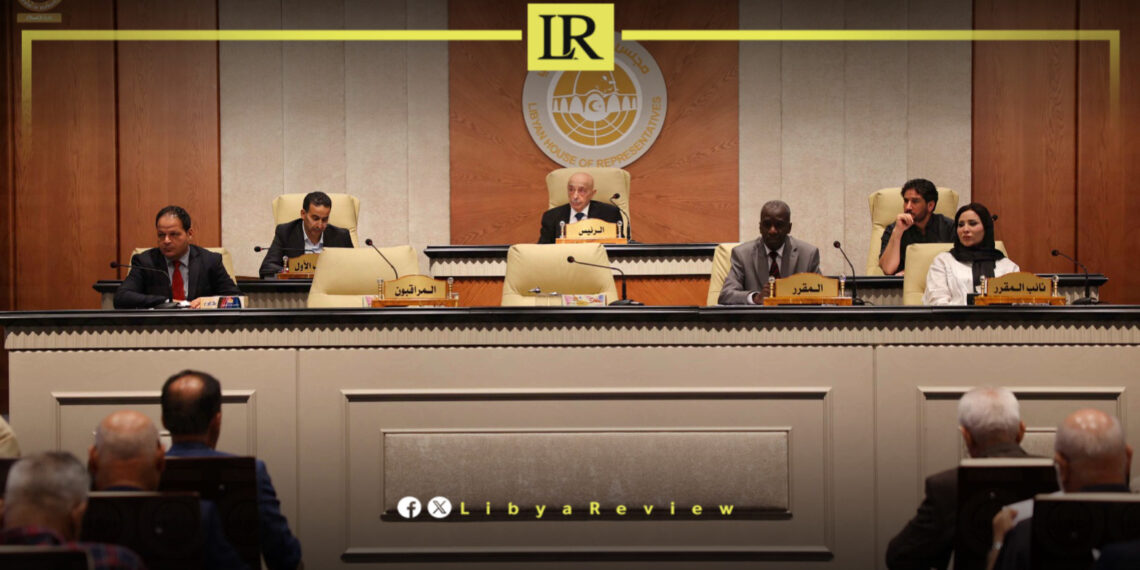The Libyan House of Representatives resumed its official session on Monday at its headquarters in Benghazi, chaired by Speaker Aqeela Saleh, with the participation of First Deputy Speaker Fawzi Al-Nuwairi and Second Deputy Speaker Misbah Douma.
During the session, lawmakers discussed a proposal submitted by more than 70 members to amend Law No. (1) of 2015, concerning the powers of military leadership levels within the Libyan Army. The amendment was unanimously approved.
In another key decision, the parliament unanimously voted to appoint Field Marshal Abdelrazek Al-Nadhouri as National Security Advisor, a move considered one of the most significant outcomes of the session.
The House also reviewed the Public Debt Law, referring it to the Constitutional and Legislative Committee, as well as the Planning, Finance, and General Budget Committee for further study.
Under the “Any Other Business” agenda item, lawmakers addressed the country’s ongoing electricity crisis. The parliament tasked the Energy and Natural Resources Committee with holding a meeting that will include the Speaker of the House, the Prime Minister, the Minister of Electricity, and several specialists. The committee is expected to submit a detailed report with practical proposals to resolve the crisis.
Libya has been in chaos since a NATO-backed uprising toppled longtime leader Muammar Gaddafi in 2011. The county has for years been split between rival administrations.
Libya’s economy, heavily reliant on oil, has suffered due to the ongoing conflict. The instability has led to fluctuations in oil production and prices, impacting the global oil market and Libya’s economy.
The conflict has led to a significant humanitarian crisis in Libya, with thousands of people killed, and many more displaced. Migrants and refugees using Libya as a transit point to Europe have also faced dire conditions.
The planned elections for December 2021 were delayed due to disagreements over election laws and the eligibility of certain candidates. This delay has raised concerns about the feasibility of a peaceful political transition.
Despite the ceasefire, security remains a significant concern with sporadic fighting and the presence of mercenaries and foreign fighters. The unification of the military and the removal of foreign forces are crucial challenges.


